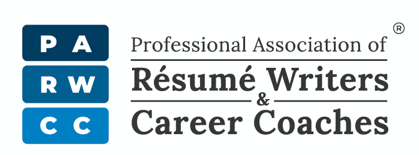
Blackballed by the Bots: The Hidden Cost of Suing Corporate America
In an era of AI-powered hiring systems, automated résumé filters, and algorithmic decision-making, discrimination in the job market hasn’t disappeared—it’s just become harder to detect. More workers, particularly minorities, are turning to the courts to fight what they believe are biased systems, discriminatory practices, or unfair treatment by large corporations.
But before filing a lawsuit against a major employer—especially a Fortune 500 company—workers should pause and consider what few are willing to say out loud: even if your claim is valid, suing your employer could destroy your future career.
The Lawsuit That Follows You
While discrimination lawsuits are legal and sometimes necessary, they come with an invisible cost: they leave a permanent digital footprint.
Civil lawsuits are public records. They can be found by employers conducting deep background checks, HR vendors using litigation-tracking tools, and third-party screening services scraping court databases. Once your name is tied to a lawsuit—win or lose—it may quietly disqualify you from future job opportunities. Companies don’t need to say why they didn’t call you back. But your legal history can silently brand you as “high risk,” “difficult,” or “litigation-prone.”
The Numbers Rarely Work in Your Favor
The harsh truth: most individual employment lawsuits don’t yield life-changing payouts. Mild discrimination claims often result in settlements ranging from $30,000 to $75,000 before taxes and legal fees. Stronger cases might reach $100,000 to $200,000. Class-action lawsuits can involve millions—but that total is split across large groups of claimants, often leaving individuals with modest amounts.
After taxes, attorney fees, and months or years of stress, many plaintiffs walk away with a small check and a résumé permanently tied to a legal dispute with a major employer.
The Lawyers Don’t Carry the Risk—You Do
It’s important to understand that some employment attorneys encourage lawsuits with little chance of success. Why? Because they get paid regardless—either through billable hours or contingency fees. They often aim for quick settlements, not trial wins. And when the dust settles, they walk away with their cut and their reputation intact, while you walk away with a career that may never fully recover.
You may walk away with $40,000—and doors that stay closed for years.
Why Minorities Are Most at Risk
Workers of color, older employees, disabled professionals, and other marginalized groups often experience real and repeated discrimination. But ironically, they’re often the most severely impacted by the long-term fallout of a lawsuit. If your name becomes known in HR circles—or in public databases—as someone who has sued for racial, age, or disability discrimination, your résumé may quietly go to the bottom of the pile.
It doesn’t matter if your claim was justified or successful. In many cases, you’ll never even know what opportunities were silently taken off the table.
The Exceptions: When Lawsuits Do Work Out
To be fair, there are exceptions to the career-cost rule—most notably for C-level executives, public figures, and those involved in high-profile class-action lawsuits or federal investigations. These individuals often have PR firms, elite legal teams, and insider networks that allow them to bypass standard HR channels entirely.
C-level plaintiffs can—and do—win big. A CEO who sues for wrongful termination tied to whistleblower retaliation or bias might receive a settlement between $1 million and $5 million or more. In some SEC- or Sarbanes-Oxley–protected claims, executive whistleblowers have secured awards exceeding $10 million. These individuals typically rebrand themselves, secure board seats, launch consulting firms, or enter public speaking circuits. Their lawsuits may even enhance their public credibility.
But these are the outliers. For the average employee—someone in middle management, frontline support, healthcare, education, or tech—litigation is not a launchpad. It’s more often a dead end.
So What Can You Do Instead?
Litigation should always be the last resort, not the first. Consider alternative paths that protect your career while preserving your rights:
- Report internally and document every step.
- File a quiet EEOC complaint that may lead to mediation or resolution without public exposure.
- Strategically exit a toxic environment and grow your career elsewhere.
- Channel your experience into advocacy, anonymous writing, or professional networks working for systemic reform.
Sometimes, quiet progress beats a public battle.
Final Thought: Know the Tradeoff
You have the right to speak up. You have the right to sue. But know the tradeoff.
In today’s risk-averse, AI-vetted job market, filing a discrimination lawsuit is like lighting a flare. People see it. Some may support you. Many will avoid you.
So before you sue, ask yourself: Will this decision protect my future—or just end it?
#JobSearch #DiscriminationInTheWorkplace #EmploymentLaw #CorporateAmerica #CareerAdvice #WorkplaceBias #BlacklistedByHR #ResumeTips #HiringBias #AIInHiring #LawsuitRisks #MinorityProfessionals #HRPractices #WorkplaceRealities #TruthAboutLitigation #CareerConsequences #WhistleblowerTruth #ProfessionalReputation #ATSBias #WorkplaceJustice




